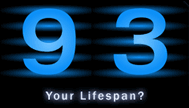What's Your Baby's Developmental Age?
If you're a parent then you know that babies are amazing people! Watching them learn and grow is truly fascinating, and a whole lot of fun! However, they all grow and learn at such different rates from each other, varying widely even amongst twin siblings, that it can be hard to tell if your child is fast, slow, or right on track.
Lots of parents take immense pride in the new things their children are learning, believing their child to be special. And it's true! All children are special, and no two are alike! Are you one of the parents who believes your baby is superior to other babies in his/her age group? Or are you concerned that your baby might be developing a little too slowly? Well, I don't pretend to be an expert on the topic, but this quiz might give you a general idea of where your baby is compared to other babies. As always, talking over concerns with your pediatrician is vital to your child's health, especially if you have concerns of any nature. But if you're just looking for kicks, then this quiz is for you!

